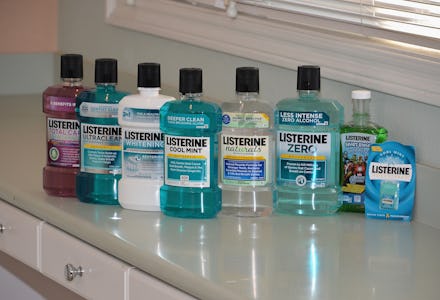In a world of antibiotic-resistant gonorrhea, Listerine offers a glimmer of hope

Immersing one's genitals in Listerine does not sound like the most pleasant experience, but in a super-bacteria-riddled future, mouthwash might be a better bet to treat gonorrhea than antibiotics, according to a new study.
As the Huffington Post reported, this was the first randomized clinical trial of Listerine's original intended use — curing gonorrhea, among the most common sexually transmitted infections.
Researchers at Australia's Melbourne Sexual Health Center tested an array of Listerine dilutions — with both Cool Mint and Total Care — against a saline solution control, first in a petri dish and then on a sample of 58 men who had tested positive for gonorrhea of the throat. Some men gargled saline solution for one minute, while others gargled Cool Mint Listerine for one minute.
Within the latter camp, participants were "significantly less likely" to test positive for gonorrhea after a throat swab, the study found — 52% tested positive versus 84% of saline garglers. Listerine also seemed to have preventative properties: Participants who used Listerine were 80% less likely to test positive for gonorrhea than those who used saline.
The team did not extend their trial to body parts other than the throat, so it's not certain that Listerine would have the same bacteria-reducing effects on other types of gonorrhea. And because only men participated, scientists still need to study Listerine's effects on women.
With antibiotic-resistant bacteria on the rise, the simultaneous escalation in gonorrhea diagnoses is particularly frightening: In October, the Huffington Post reported gonorrhea cases were 13% more common than they had been in 2014. And recently, a so-called super gonorrhea, which does not respond to antibiotic treatment, appeared in England, Japan and Canada.
While the results of this trial are not conclusive, they do at least suggest that there might be hope in the fight against super bacteria, and that 2016 has, at least, thrown us that bone.